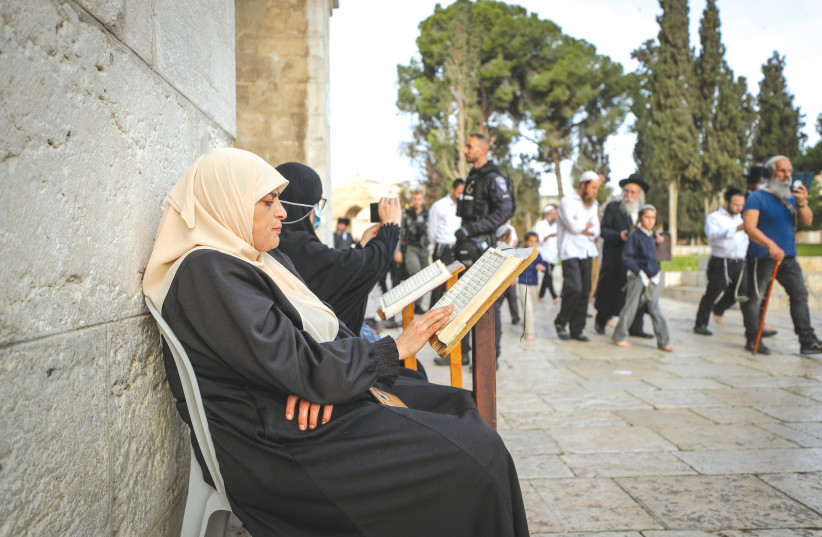On Passover, I received an invitation from President Isaac Herzog to speak at an Iftar, the meal that marks the breaking of the fast at the end of each day of Ramadan. I was moved by the invitation but at the same time, I was hesitant. To speak, I want to come with a full heart; and yet, my heart was broken following the murder of the three members of the Dee family by terrorists.
It was, however, from the words of Rabbi Leo Dee, the father of the family, that I was inspired both to attend and also guided about what to speak about. Unimaginably, in wake of the murders that came in the name of religion, Dee chose to protest against the evil in the world and also talk about the positive dimension of religion in bringing blessings to the world.
He noted that this year was a rare confluence of Passover, Easter and Ramadan, the former two marking redemption and the latter’s message being about generating empathy for those in need and making the world a better place.
Religion and finding meaning
Every year, I am moved anew during the month of Ramadan when I see the Muslim workers sweating under the hot sun and I know that all month they are fasting. From these people, I have learned that faith in God gives one strength to do that which is difficult. Those who believe that there is something bigger than themselves will have the power to do big things.
I remembered a friend of mine responding after being asked why there is so much violence in the name of religion. He replied, “Religion is power and power corrupts.” But the flip side of this bitter truth is that power can also build. The challenge of every believer of every religion is to channel this tremendous power to bring light and healing into our world, which is filled with so much pain and is so broken.

I WAS reminded of an additional expression of this truth when I arrived at the Iftar, which was in Shfaram with hundreds of participants. As I approached the pulpit, Herzog shared with everyone how I had been so ill over the summer that it was thought I was already on my way to the next world. He concluded his words by exclaiming, “Thank God, our common God brought him back!”
Immediately, Emir Sheikh Muhammad Odeh Sharif added that he had received a request that was circulated to pray for me while he was on an airplane and immediately held a special prayer for me on the plane. On the verge of tears, I told everyone how my wife distributed prayer requests around the world while using Google Translate to reach all my WhatsApp friends in each person’s individual language.
I thanked all those who prayed for me and began to speak. From the warm responses I experienced afterwards, I felt the realization of the proverb that words that come out of the heart enter the heart.
The bond between the different relations to the divine and to humanity is a great foundation of the Torah, as Rabbi Akiva teaches that a cardinal rule of the Torah is to love your neighbor as yourself and Rabbi Akiva explains this in the Mishna in Avot where he teaches “beloved is humanity who are made in the image of God.”
The holy is found not only on the horizontal axis to heaven but also on the horizontal axis to the ‘other.’ In the words of the Holy Zohar, there is no healing for the world until people gaze face to face.
The very greeting given on Ramadan gives guidance to this end. “Ramadan Kareem,” meaning a generous Ramadan, is a prayer that this month will be one of giving and of charity.
Muslim friends explained to me that when a person experiences hunger while fasting, he will be more empathetic, more generous to the poor people who are hungry all year round. When I studied in the Quran “Surat al-Baqarah,” a Surah that gives much respect to Ahl al-kitab, the people of the book, which includes Jews, Christians and other believers, I was moved by a verse that says that those who cannot fast can replace fasting with charity for those in need. In this is the connection between the worship of God and generosity to people, the meaning and significance of Ramadan Karim.
Ultimately, our religions are different but our God is one and we share our common humanity. May we all draw closer to God this month and every month by drawing closer to each other and truly fulfill the will of the Divine.
The writer, a rabbi, is the director of Ohr Torah Stone’s Blickle Institute for Interfaith Dialogue.
